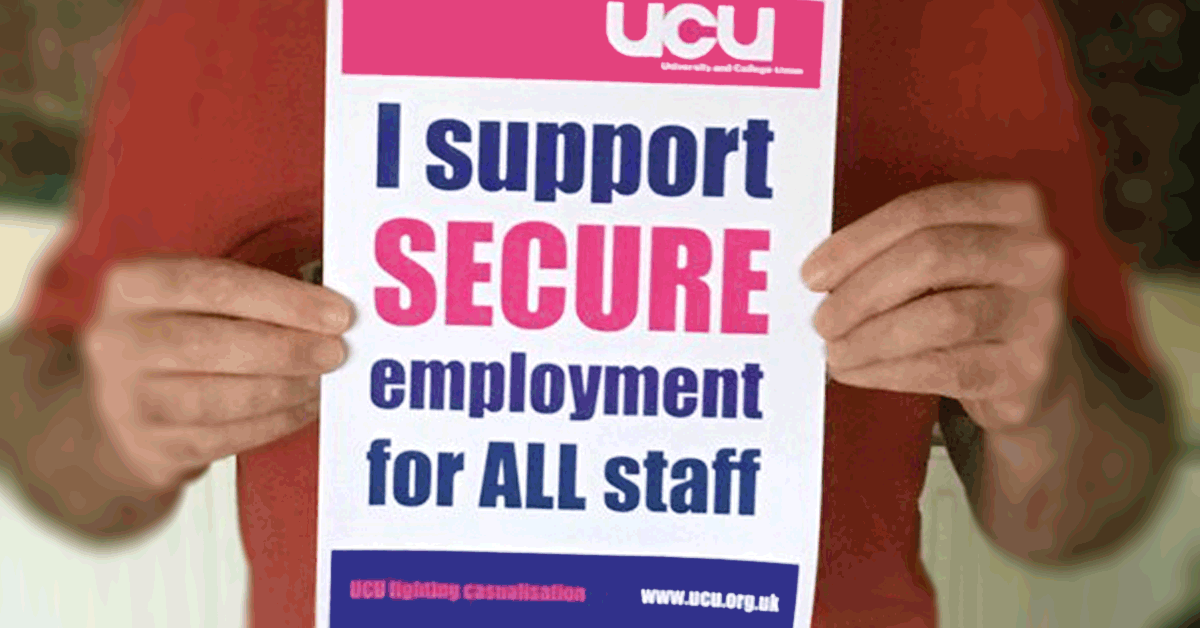Increase in number of people on 'pernicious' zero-hours contracts
25 February 2015
Almost 700,000 people say their main employment is on a zero-hours contract, an increase of 111,000 on the previous year, according to a report out today.
The analysis of zero-hours contracts from the Office for National Statistics (ONS) says 2.3% of people in employment surveyed between October and December 2014 said they were on a zero-hours contract, up from 1.3% over the same period in 2013.
The report says that more than one in four educational institutions (27%) use zero-hours contracts. UCU said its own findings revealed the widespread use of zero-hours contracts in universities and colleges.
On average, someone on a zero-hours contract usually works 25 hours a week, but a third of people (34%) on zero-hours contracts want more hours, compared to just one in 10 (10%) of other people in employment.
UCU general secretary, Sally Hunt, said: 'We simply do not buy the lie that zero-hours contracts are good for employers and employees. Today's report shows that a third of people on these pernicious contracts want more hours.
'The use of zero-hours and other forms of casualised contracts in education is one of the great scandals of our time. Without a proper contract staff cannot plan their lives on a month-to-month or even a week-to-week basis.
People on zero-hours contracts are more likely to be women, in full-time education or working part-time. They are also more likely to be aged under 25 or 65 and over.
The latest ONS survey of businesses indicates that there are actually 1.8m zero-hours contracts. The ONS says this can be accounted for by people who have more than one zero-hours contract with different employers or who have a zero-hours contract as well as another job.
- PrintPrint this page
- Share




Comments